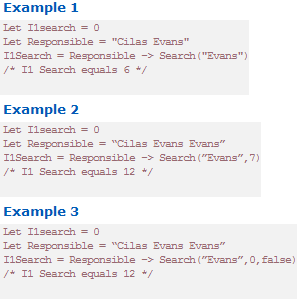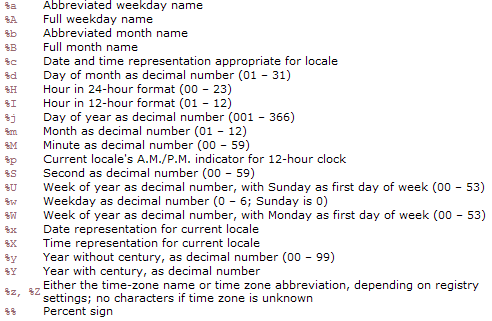String | ||
| ||
Search()
The method searches for the first occurrence of a sub string in a String type parameter. It returns the index (o or 1) of the start of the substring. It returns -1 if the substring specified is not found.
Syntax
String -> Search(StringToBeSearchedFor: String, index: Integer, forward : Boolean):Integer
- StringToBeSearchedFor is the name of the SubString parameter.
- Index is an optional parameter. It corresponds to the index of the character to start the search. The index starts at 0. If you're not using this argument, the default value is 0.
- Forward is an optional parameter. It indicates if we want to search the string from the beginning of the string (forward equal to true) or from the end (forward equal to false). Note that when we are searching backward, the index value corresponds to the rank of the character in backward order. If you're not using this argument, it will search in forward mode.
Example

![]()
Extract()
![]()
BuildMessageNLS
You can send messages or ask questions through the Message and Question functions in the language of your choice. The BuildMessageNLS function can build a NLS message (a message in a given language) by finding it in a CATXXX.CATNls file.
Example
The KwrCATCatalog.CATNls file contains the following text.
Zero = "Zero";
One = "One /P1";
Two = "Two /P1 /P2";
Zero, One and Two are the messages. The first message has no arguments, the second has 1 argument, the third, 2 arguments.
To display those messages in a Knowledge Advisor rule for example, enter the following rule body:
- Message (BuildMessageNLS("KwrCATCatalog","Zero"))
- Message (BuildMessageNLS("KwrCATCatalog","One",x)) Where x is a parameter.
- Message (BuildMessageNLS("KwrCATCatalog","Two",y,z)) Where y, and z are parameters.
Important:
|
![]()
